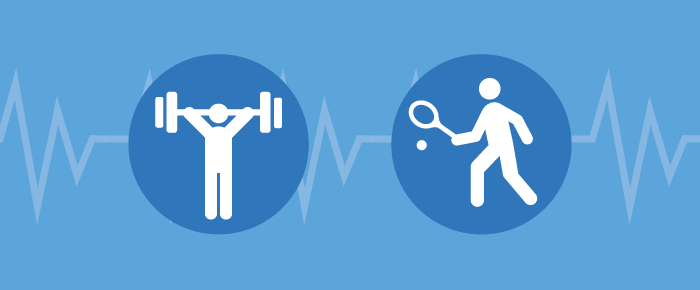Who Can Exercise During Cancer Treatment?

The advice to “rest” and “take care of yourself” continues to be a common dictum in the oncology setting. Yet, research clearly demonstrates that exercise or physical activity is important for cancer survivors during and after treatment and that cancer rehabilitation should be a standard component of care for every patient.1-2
Which Cancer Patients Should Begin an Exercise Program?
Every patient! It is up to us to creatively develop exercise programs individualized to each patient’s ability. A 20-year-old with early stage Hodgkin’s lymphoma will probably be able to tolerate a more vigorous program than a patient with more advanced disease or older age. However, even patients with advanced (stage IV) lung cancer can benefit from an exercise program.
How to Design Exercise Programs for Cancer Patients
The key is to create a program that doesn’t cause exhaustion and overexertion, yet improves cardiopulmonary function and muscle strength. To ensure patient safety, satisfaction, and success, you must have a strong working knowledge of disease characteristics, cancer treatments, treatment side effects and potential risks that need to be accounted for when designing an exercise program. You also need to be able to identify which patient is at risk for fracture, pulmonary decline, or cardiovascular compromise to design a program that promotes functional health and wellbeing.
Where Can Cancer Patients Exercise?
Cancer patients don’t have to join a gym or buy a lot of exercise equipment. With clear direction and instruction, a patient can exercise at home to not only increase their cardiopulmonary function, but also increase muscle strength and functional ability.
Also, many patients who have never exercised in a structured way will see additional benefit from referral to a cancer rehabilitation program or a cardiorespiratory program. The LIVESTRONG program at the YMCA offers community-based, individualized rehabilitation programs that are led by exercise trainers with specialized education in cancer rehabilitation. These programs can be reimbursed and offer the opportunity for cancer survivors to optimize their health during cancer treatment.
- Alfano, CM, Ganz, PA, Rowland, JH, Hahn, EE. Cancer Survivorship and cancer rehabilitation: revitalizing the link. JCO. 2012:30(9);904-906.
- Alfano, CM, Bluethmann, SM, Tesauro, G, Perna, F, Agurs-Collins, T, Elena, JW, Ross, SA, O’Connell, M, Bowles, HR, Greenberg, D, Nebeling, L. NCI Funding trends and priorities in physical activity and energy balance research among cancer survivors. JNCI 2016;108(1):dvj285 do: 10.1093/jnci/djv285

